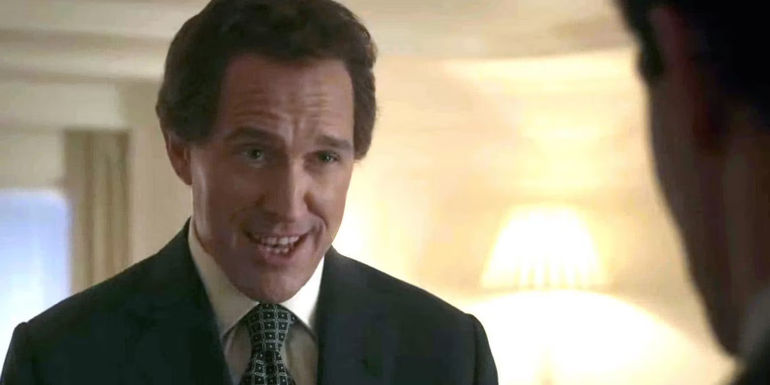
The Real Tony Blair: Beyond The Crown Season 6

Exploring the life and legacy of Tony Blair beyond the events depicted in The Crown Season 6.
The Legacy of Tony Blair
Season 6 of The Crown introduces former Prime Minister Tony Blair, but there was quite a bit of history made by Blair after the events depicted in The Crown. The Crown season 6 ends with the events of 2005, years before some of the former PM's more controversial actions came to light. The Crown closes without elaborating on what happened to the Royal Family in the 18 years between the show's finale and the present day, but the story of Tony Blair is no less intriguing than that of the Royals.
Bertie Carvel as Tony Blair in The Crown
Though The Crown paints a flattering portrait of Blair as a widely beloved Prime Minister, the real Blair's legacy is far more complicated. Since 2005, he has seen a dramatic downturn in public opinion, resigned from office, and even been accused of war crimes. The version seen in The Crown is a far cry from what happened to him in reality, both during the events of the series and after.
Bertie Carvel as Tony Blair in The Crown season 6
Resignation and Controversies
After 10 years in office, Tony Blair announced that he would be resigning from the roles of Prime Minister and Labour leader on June 27, 2007. Though there were many factors leading up to Blair's resignation, the main cause of his downfall was the Iraq War. Though the British public was overwhelmingly against joining the war, Blair sent British forces to join the invasion in 2003, leading to a massive downturn in the Prime Minister's popularity. Blair's public never forgave him for bringing the country into what many felt was an unjust and prolonged war.
Tony Blair's PM meeting at a round table with others in The Crown season 6
The Iraq War was not the sole cause of Blair's fall from grace, however. There was also quite a bit of controversy over an alleged deal made between Blair and Gordon Brown in the 1990s, in which Brown supposedly stepped aside and agreed to let Blair lead the Labour Party. In exchange, Blair appointed him Chancellor of the Exchequer and gave Brown unprecedented power over domestic affairs. While both Blair and Brown denied it, the damage was done.
Tony Blair and Queen Elizabeth II sit across the room speaking in The Crown season 6
Further damage was done when Blair was roundly criticized for not calling for a ceasefire in the 2006 Israel-Lebanon conflict. The negative public opinion and mounting pressure added up, leading him to announce his resignation as both Prime Minister and as leader of the Labour Party in 2006, with an agreement that he'd step down by the fall of 2007. He ceded his office to Gordon Brown in 2007.
Career After Prime Minister
After his resignation, Blair was appointed as special envoy to the Middle East, representing the quartet of the U.S., the EU, the UN, and Russia. During this time, it was hoped that Blair would be able to improve relations between Israel and Palestine. Though he did announce an initiative for Palestinian rights in 2008, he ultimately left the role in 2015 without seeing his plan come to much success. In 2017, he announced a return to politics, hoping to impede Brexit and prevent the Labour Party from becoming too leftist. However, he also announced that he would not be pursuing a seat in Parliament.
Also in 2017, Blair founded the Tony Blair Institute for Global Change, a non-profit aimed at strengthening moderate politics in what he felt was an overly polarized political climate. During its formation and since, he maintained that the purpose of the Institute was not to form a new party. He also worked as a consultant on political and economic trends, serving as a senior advisor at JPMorgan Chase and as an advisor to the Kazakhstan government.

















